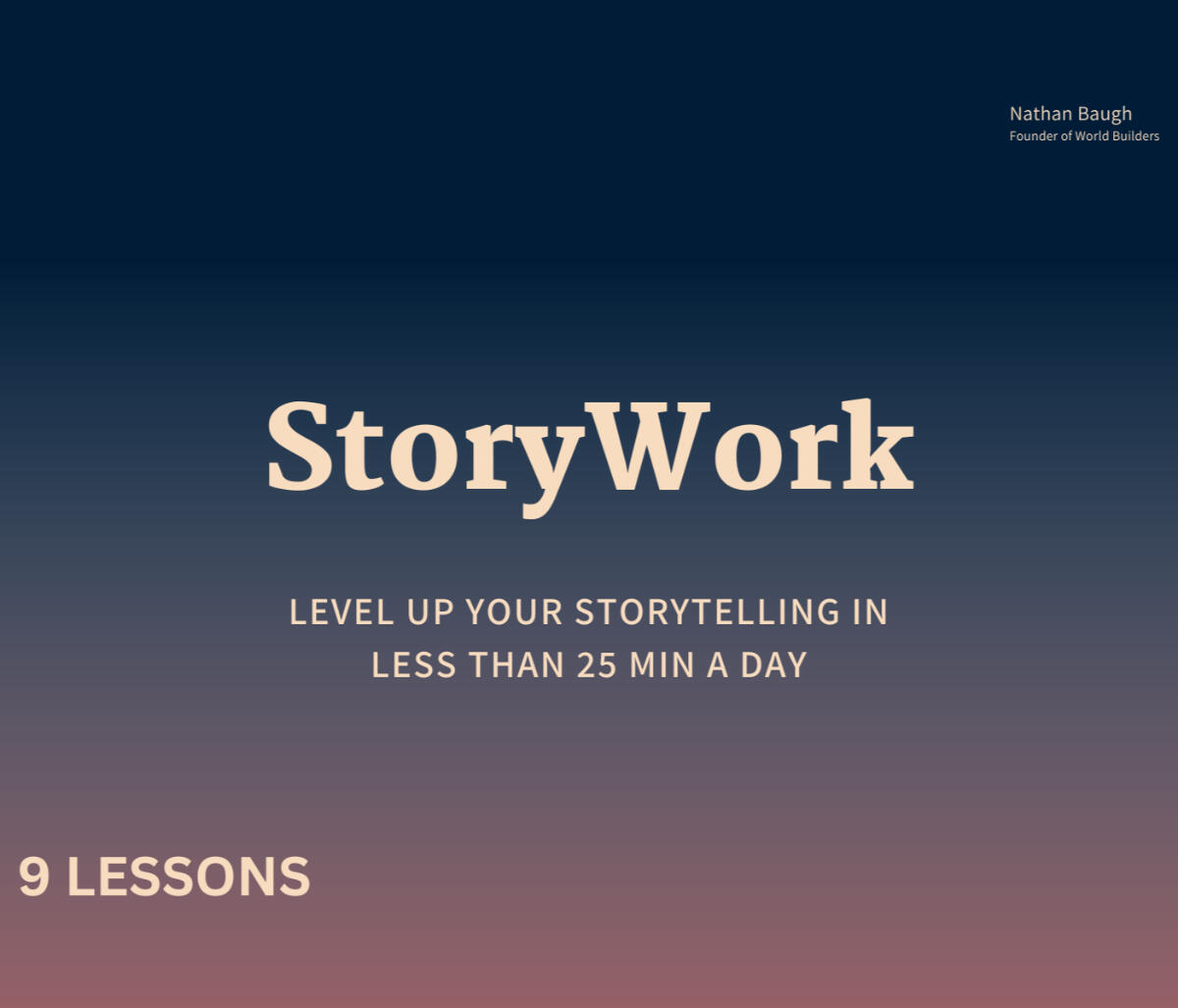- World Builders
- Posts
- Hidden in plain sight
Hidden in plain sight
Capturing stories in everyday life
Hey friends,
Today's newsletter focuses on capturing story ideas and tactics learned from Mr Beast.
You can check out last week’s piece here. And remember I’ll send you a bunch of resources and frameworks if you refer two friends with your unique link at the bottom.
Let’s make you a better storyteller…

One Idea
It's a myth that great storytellers only think of great stories or that insightful people only have brilliant ideas. But they do have a habit of capturing their experiences and insights, and the patience to filter the majority until the best remain.
When talking about storytelling, a common theme I hear from people is a general struggle to identify stories to tell in the first place. There are the obvious ones – the crazy things that happen to each of us – but more important is capturing the small but powerful stories that happen every day.
I wanted to share two repeatable processes to capture story ideas:
Keep a story log – a two-column spreadsheet (Column A, date and Column B, story) where you write down one story from your day each evening. There are two rules: it must take you less than five minutes and be less than five sentences.
Stream of consciousness – write whatever comes to your mind for 10 minutes without any filter; feel free to jump from idea to idea. At the end, mark the ideas that make the most interesting stories. You’ll be surprised how many previously forgotten stories come to your mind.
I bet you have more stories hidden in your day and in your memory than you realize.

Two Tactics
Mr. Beast is the most popular YouTuber in the world. To me, he’s a young Walt Disney. Here are two storytelling tactics he uses across his videos that you can, too:
1/ Use proven hooks
Mr Beast cut his hair and saw his YouTube views plummet. He figured out why — his audience didn’t recognize him on his YouTube thumbnails.
He used a simple fix: photoshopping his old hair back on. What can we learn from this?
Study what works in your stories (and the stories of others) and double down. Someone laughed at that one joke? Tell it again. The way you talked about your grandma made someone tear up? Use those same words.
2/ Consider “Jenga storytelling”
Mr Beast starts most videos at the very end, showing the audience the final outcome. It's a technique called Jenga storytelling. Why does this work?
One of YouTube's key metrics is audience retention throughout the video. Beast wants you to watch as long as possible, and this tactic makes the audience wonder how they get to the end. It creates a sense of mystery, a need to fill in the gap in the story.
Breaking Bad did the same thing in the first episode with Walter White, a high school chemistry teacher, standing by himself on the road with a gun. It makes you want to keep watching.


Three Resources
One Thread
Mr. Beast was so obsessed with YouTube that he talked growth strategy with friends on Skype every day for more than 1,000 days. By the end, everybody in the group had more than 1 million subscribers.
— David Perell (@david_perell)
12:12 PM • Aug 30, 2022
David uncovered a video of Mr Beast talking about how his obsession with YouTube. This line struck me as true:
“Like Mr. Beast, most obsessions won't seem valuable at first, which is why people make fun of them. We should think differently about them though. Obsession makes you one-of-a-kind, and one-of-a-kind people are precisely who the Internet economy rewards.”
One Newsletter
Brian Feroldi writes (and illustrates) some of my favorite content around investing and personal finance.
This recent piece on “The Ultimate Luxury” hit home.

One Podcast
I got to go on the Linen Suit & Tie Pod to talk all things storytelling, newsletters, and twitter. It was a good convo I think you’ll enjoy.
You can listen on Spotify or Apple Podcasts.

A message from... Me!
The interest in this tweet blew me away...
One way to become a better storyteller:
Take your two favorite authors. I recommend one non-fiction and one fiction.
Copy, word for word, their best work. Do it by hand.
I chose Paul Kalanithi and Neil Gaiman.
It’s the single exercise that improved my writing the most.
— Nathan Baugh 🗺️ (@nathanbaugh27)
3:06 PM • Jan 5, 2023
In my experience, there are two ways to get good at storytelling:
Study the greats (what this newsletter is for)
Practice, practice, practice
I do a lot of practice through StoryWork.
And so many of you liked, commented, and sent me DMs about the practice I decided to turn it into a guided course for you.
Check it out:

I hope you enjoyed that.
The biggest compliment you can give me is bringing on a couple more friends as World Builders. I'll send you a curated list of frameworks and resources to become a better storyteller if you use your fancy, unique link below.
Talk next week,
Nathan
P.s: If you want to get your brand in front of 24k creators, entrepreneurs, and storytellers, fill out this form.
